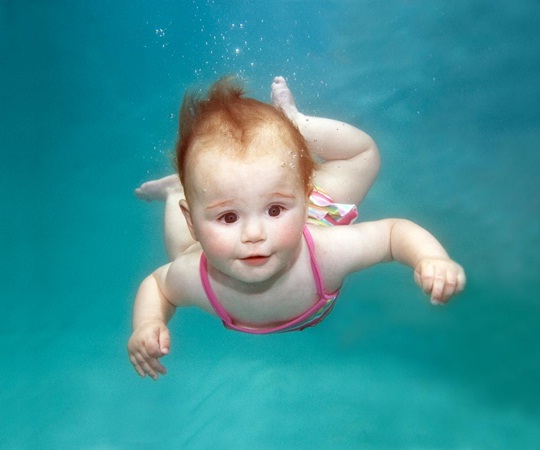Diseases are prone to swimming when swimming and preventive measures
When swimming, if you do not ensure the safety conditions will be prone to ENT due to drinking water or choking pool water to bring germs into the nose, throat, sinuses, especially bacteria of the meningococcus.
Diseases are prone to swimming
According to Dr. Nguyen Tran Nam, Khoa Nhin, Children's Hospital of Ho Chi Minh City, swimming has many good effects on respiratory, cardiovascular, joint, muscle and obesity organs. Every hour of swimming regularly consumes about 800 kcal. Many studies show that swimming for 30 to 60 minutes a day, 3 to 4 days a week can reduce the risk of stroke, cardiovascular, diabetes, hypercholesterolemia and hypertension.

Photos: News.
However, doctors also recommend that some diseases can be encountered when swimming like:
1. Dermatology: Due to infection from people with swimming diseases, due to high water content of chlorine or excessive sunlight causing skin and hair damage. A fever that causes genital infection through pool water swabs is recorded as gonorrhea, genital infection .
2. Otolaryngology : Due to drinking water or choking pool water, bringing germs into the nose, throat, sinuses. In particular, meningococcal infection may progress very quickly due to sepsis.
3. Eyes: Ocular conjunctivitis is most likely to occur when swimming.
4. Diseases of the gastrointestinal tract, especially diarrhea.
5. Asphyxiation is caused by children who are not familiar with or are not closely supervised by adults, so it is easy to suffocate.
To ensure safety for children when swimming, parents should note:
1. Take your child to the doctor to see if he or she has chronic, especially respiratory, ENT, or other diseases that are at risk of infection when swimming.
2. Should choose a pool not too crowded, ensure hygiene standards. Observe choosing a pool with water to see the bottom, little moss or leaves, no strange taste. After swimming, consider strange reactions on the skin.
3. It is recommended to choose a child-friendly swimming instructor from the beginning to avoid bad habits that are harmful to health.
4. Children under 5 years of age, should not soak for more than 30 minutes each time, over 5 years old should swim less than 60 minutes.
5. Parents or instructors should supervise children often when they swim to detect an accident early.
6. Should swim in lakes not too crowded. Should choose the time the outdoor temperature is not too high.
7. Apply sunscreen.
8. Do not eat well or leave your stomach hungry when entering the pool.
9. Should work 10 to 15 minutes before entering the pool.
10. Wear glasses and swimming hats to limit infection.
11. Should swim in time, remember to drink enough water.
12. When you go ashore, wash your face immediately with soap, wash your eyes, nose, and ears with sterile physiological saline , dry your ears, rinse your mouth with salt water.
13. When detecting strange signs after swimming, see a doctor.
- Going to summer swimming is prone to infectious diseases
- Public swimming pools and scary facts
- How to swim with the right technique, right method
- This is the fastest way to swim in the world, but it is not present in competitions
- 8 prone skin diseases in summer heat
- 5 common diseases that people need to know
- Greenhouse effects - Preventive measures
- How do people with eye color suffer from skin diseases?
- Those who absolutely should not go swimming
- The secret of swimming pool water contains toxins
- The startling truths you need to know before swimming
- Effective measures for foot and mouth disease response
 Green tea cleans teeth better than mouthwash?
Green tea cleans teeth better than mouthwash? Death kiss: This is why you should not let anyone kiss your baby's lips
Death kiss: This is why you should not let anyone kiss your baby's lips What is salmonellosis?
What is salmonellosis? Caution should be exercised when using aloe vera through eating and drinking
Caution should be exercised when using aloe vera through eating and drinking